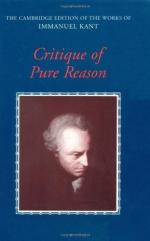|
This section contains 1,311 words (approx. 5 pages at 300 words per page) |

|
The prominence of the modalities (i.e., necessity and contingency) in epistemological discussions is due to the influence of Immanuel Kant (1965), who maintained that:
- All knowledge of necessary propositions is a priori; and
- All propositions known a priori are necessary.
Saul Kripke (1971, 1980) renewed interest in Kant's account of the relationship between the a priori and the necessary by arguing that some necessary propositions are known a posteriori and some contingent propositions are known a priori. A cogent assessment of the controversy requires some preliminary clarification.
The distinction between necessary and contingent propositions is metaphysical. A necessarily true (false) proposition is one that is true (false) and cannot be false (true). The distinction between a priori and a posteriori knowledge is epistemic. S knows a priori that p just in case: (a) S knows that p; and (b) S's justification for believing that p does...
|
This section contains 1,311 words (approx. 5 pages at 300 words per page) |

|


